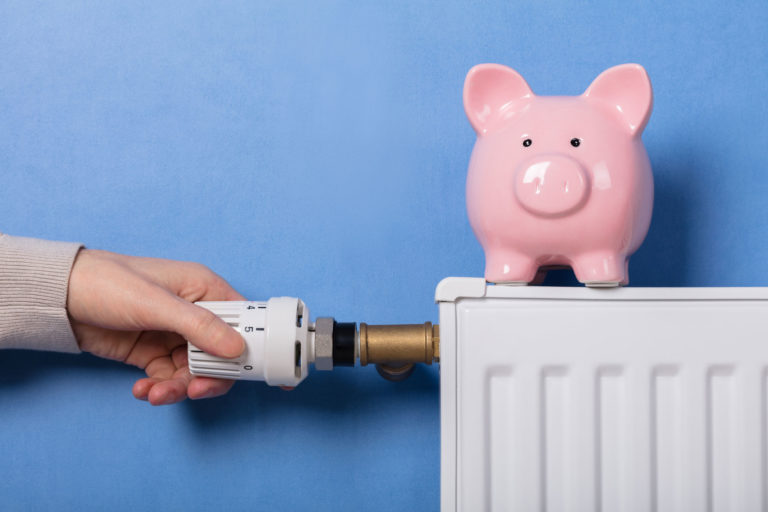Japan is a country known for its bitter winters and humid, sun-drenched summers. It can be difficult to not want to do anything except stay inside during these two times of the year, and many often do. At least, as much as they can when they are not working a full-time job and taking on extra work just to pay their bills. According to the Asahi Shimbun, Tokyo Electric Power Co. will hike its rate for a standard household by 1,652 yen compared to a year ago. The other major utility companies in Japan also announced that their rates would increase about 10 to 20 percent.
Currently, Japan has a fuel-cost adjustment system in place, which means that monthly electricity costs are adjusted automatically, based on the rise or fall of fuel prices. However, Russia’s invasion of Ukraine pushed the fuel prices way up, and the fuel-cost adjustment system that was put in place to protect consumers now is much less effective in keeping utility bills to a comfortable minimum each month. Japanese utility companies have been struggling to keep up with the increase in the price of fuel.
Because utility costs are on the rise these days, a lot of people are looking for ways to minimize the amount of power they consume and thereby lower their electricity bills. We’ve put together a short list of tips and hacks you can use to reduce your electricity bill in Japan, and you might just find that it’s a lot easier than you think to avoid paying too much every month to stay comfortable. Here they are in no particular order.
CLEAN THE AIR CONDITIONER FILTER
Japanese energy experts suggest cleaning your air conditioner’s filters at least once every 1-2 years. It’s important to clean the air conditioner filter as meticulously as possible too, in order to keep the air conditioner filter from getting clogged and dirty.
What is extremely convenient about many air conditioning units in Japan is their self-cleaning function, which looks like this: “内部クリーン” on your air conditioner remote control. This “inner cleaning” function can be used for a few hours every time the air conditioning unit is run, in order to prevent moisture and mold from building up. Such thorough cleaning will definitely help save money over time.
PLACE THE ELECTRIC HEATER IN FRONT OF THE WINDOW
As air circulates throughout the home, it naturally mixes with the cold air coming in from the small holes that every window has in their window frames. The warmer air inside the home will get colder, as a result. To overcome this loss of heat inside the
home, simply place the heater in front of the window. This will help transform the cold air coming in from the window into warm air. There will then be less of a need to crank up the heater and use more electricity.
POINT THE AIR CONDITIONER UPWARD
Hotter air naturally rises. In order to take advantage of this phenomenon, point the air conditioner vents at an upward angle (and preferably to one side as well, if possible). This can help either reduce the accumulation of hot air inside your home, or help to maximize the amount of hot air that can be felt (depending on whether or not your home has an air conditioner that also doubles as a heater). Surprisingly, this also can help reduce your electricity bill in Japan!
INCREASE THE HUMIDITY INSIDE THE HOME
Statistical data analysis by Japanese energy experts suggests that the humidity inside of a house can actually warm up our skin. Keeping the home humid during the winter months by purchasing a humidifier. This will not only keep you warm, but also combat the dry winter air that Japan is also known for.
CLOSE THE CURTAINS
A lot of heat regularly escapes through the openings in curtains. This results in loss of heat and an eventual upsurge of the electricity bills. The solution? Simple: Keep the curtains closed!
CLEAN THE SURROUNDINGS OF THE AIR CONDITIONING UNIT
Any type of solid blockages around the air conditioner unit will most certainly lead to a subsequent reduction in both the functioning and efficiency of the unit. This results in the extra usage of electricity. Clean the entire areas in front of, below, and above the air conditioner.
ADJUST THE PRESSURE OF THE REFRIGERATOR
During the winter, you may not necessarily need to keep the refrigerator’s pressure the same as you would during the summer. This is due to everything being naturally colder in the winter season. Adjusting the pressure of the refrigerator to a below normal level, while still keeping food cool and safe to eat, is a very practical way to save on the electricity bill. When the summer season begins, simply turn the pressure gauge back up to normal.
KEEP YOUR CLOTHES PACKED UP
If you have a lot of clothes lying around the house, pack them up and store them in boxes. Keeping these containers near the walls is especially helpful, as they act like buffers against the thin walls that many Japanese apartments and homes have and the cold air outside. Putting the boxes against the walls essentially creates more layers of the wall for the cold air to try and pass through.
KEEP THE BODY WARM
Dressing warmly and drinking hot liquids are a great way to stay warm without cranking up the heater in winter months. It’s also good to remember that running your heater will further dry out the air in your home or office, which puts you and those around you at risk of catching a flu or cold.
CHOOSE LOW-POWER APPLIANCES
Using low-power devices is another way to reduce the consumption of electricity. For example, charging our iPhones, iPads, and Amazon Kindles can be done with solar battery chargers. These type of chargers absorb the sun’s energy and then re-distributes it to your electronic devices.
Another low-power device is LED lighting. If you are still using regular fixtures and bulbs, switching to LED lighting will prove to be much more cost efficient and safer (LED lights don’t contain any of the toxic chemicals that most other light bulbs do). Not to mention, LED lights can be used for up to 100,000 hours before needing replaced. They also can be dimmed, which can further help reduce electricity consumption.
USE SMART METERS
Smart meters that are installed in the home can record data on power usage and send it to utility companies for monitoring. The benefits of using smart meters include the promotion of energy conservation through being able to visualize exactly how much energy is being used at any given time during the day or night.
For example, you can set up the smart meter to automatically limit the use of home appliances in periods when there are higher levels of electricity consumption. This will allow you to be much more efficient in your energy usage on a daily basis.
Many Japanese homes and apartments already have smart meters installed (the goal of installing smart meters throughout all of Japan was embraced by companies like TEPCO for nearly a decade and is still going strong), though if you didn’t want a smart meter for some reason, you are able to opt out of having one. There is no law in place
in Japan that requires a smart meter in the home, but it’s a good choice nonetheless to make.
According to Japan’s Ministry of Economy, Trade, and Industry, “Japanese utilities must install smart meters in all households by March 2025 to improve energy efficiency.” (LINK)
UNPLUG YOUR APPLIANCES WHEN NOT IN USE
The household lights, air conditioner, electric water heater, and television can all be turned off and unplugged when not being used. These appliances use electricity even while turned off. This is known as “phantom energy” or “vampire power,” and it’s responsible for increased energy costs every month in the home. Before you go to sleep at night, just unplug the appliances and you should see a difference in your electricity bill right away! Find other tips for reducing waste through phantom energy in this helpful article called Phantom Power: What It Is and Why You Should Care.
CONSIDER SOLAR PANELS FOR THE HOME
Recently, Japan’s government has decided to study the usefulness and effects of installing solar panels in residential homes and office buildings all across Tokyo. The mandate would help decrease the overall usage of electricity and save on electrical costs for everybody in Tokyo. This same idea is also being considered in other cities throughout Japan.
In Conclusion
Living in Japan can be costly, depending on where you live, the size and condition of your residence, the headcount of your household, your lifestyle, and more. However, no matter what your circumstances, following the guidelines above can help bring down the cost of that monthly bill.
Changing utility providers is also a way to save money on electricity. Companies like Hinatao Energy, for example, offer reliable and affordable electricity rates that guarantee quality electrical service with competitive pricing and other benefits such as English billing and support, payment by credit card, and more.








